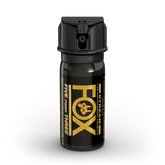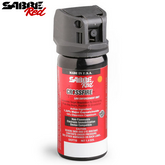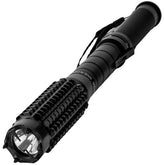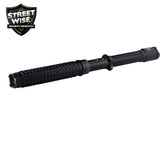Disaster Preparation and Safety Tips
Believe it or not the 2009 hurricane season is upon us. Many of us are still recovering from Hurricane Gustav which wreaked havoc on the Louisiana and Texas less than one year ago. One lesson I learned personally during Gustav is that you can never be too prepared for a natural disaster and the more preparation you do the better.
With that being said, I would like to share some very important information on topics such as hurricane safety tips, understanding hurricanes, staying at home or choosing to evacuate, family planning, supply kits and pet preparation.
Hurricanes such as Katrina and Gustav most recently were deadly storms. Many, many lessons were learned from the mistakes made prior to, during and after Katrina. The preparation was much better for Gustav, but I think most will agree we still have work to do.
Key Hurricane Safety Tips include:
- Emergency telephone numbers should be posted close to land line telephones. For cell phones, put the emergency numbers on speed dial. These include fire, police, EMS, local shelters, hospitals, etc.
- Each member of your family (over 3 years old) should be taught to and when to call 911.
- Learn and teach all family members how and when to turn off utilities such as gas, water and electricity
- Review your home and automobile insurance and make sure you have adequate coverage
- Learn how to use fire extinguishers and make sure all family members know how to use them and where in the house they are located.
- Install smoke detectors within the home, especially in bedrooms and bathrooms
- Learn CPR and First Aid from an accredited organization such as the Red Cross.
- Escape routes to your home should be memorized.
- Plan a location to meet family and friends should you become separated from us
- Know how to turn off utilities if told to do so by authorities.
- Post a set of instructions that can be easily followed by others by in the family
- Fill your bathtub and large containers with water for sanitary purposes
- Make sure you have a battery powered radio, flashlights, batteries, canned goods and non-electric can opener.
- Remove objects from around your home that could become dangerous projectiles.
- Put the refrigerator setting on the maximum cold and only open when necessary.
- Freeze water to create ice. Keep adequate supplies on hand.
- Board of the windows
- Have an airline approved carrier or wire pet crate
- Identification papers (picture of your pet, contact information, shot records)
- Recommend micro-chipping with your local vet.
- Pet medication
- Beds and toys. This will help ease the stress.
- Secure them in an upper level room with plenty of food and water.
- Post stickers on all exterior windows to display the number of and location of your pets.
- Never leave your animal chained up
- ID your animal with information on a collar.
Shop Stun Batons
Stun Master 110,000,000 Volt Bad Ass Metal Stun Baton And Flashlight
18 reviews
Looks like a police "billy club" and delivers an amazing 110 million volts of electricity 4.9 milliamps depending on the charge of the batteries Made from some of the strongest material on the planet - high-quality aircraft aluminum High-end tactical 120 Lumen LED flashlight Firm rubberized contoured grip...
- $49.95
$59.95- $49.95
- Unit price
- / per
Streetwise Mini Barbarian Stun Baton Flashlight 9,000,000
2 reviews
The MINI Barbarian is the perfect name for our newest stun baton. If Conan the Barbarian lived in modern times, we are sure this would be his weapon of choice. Even in our more refined culture, there are still “barbarians” who roam the streets....
- $49.95
$54.95- $49.95
- Unit price
- / per
Streetwise Barbarian 9,000,000* Stun Baton Flashlight
5 reviews
Protecting yourself with the Barbarian is as easy as 1,2,3: Identify Threat: An attacker will use the cover of darkness to sneak up on their victims and to hide their identity. He'll also look for the most vulnerable victim. This powerful light beam shined...
- $55.95
- $55.95
- Unit price
- / per
Streetwise Attitude Adjuster Stun Baton Flashlight
3 reviews
Adjusts from 16.5" to 19": With a quick twist of the handle, you can adjust this unit to any desired length between 16.5" and 19". Triple Stun Technology: Most stun guns on the market today have only one or two points of contact. When...
- $59.95
- $59.95
- Unit price
- / per
Tags:














